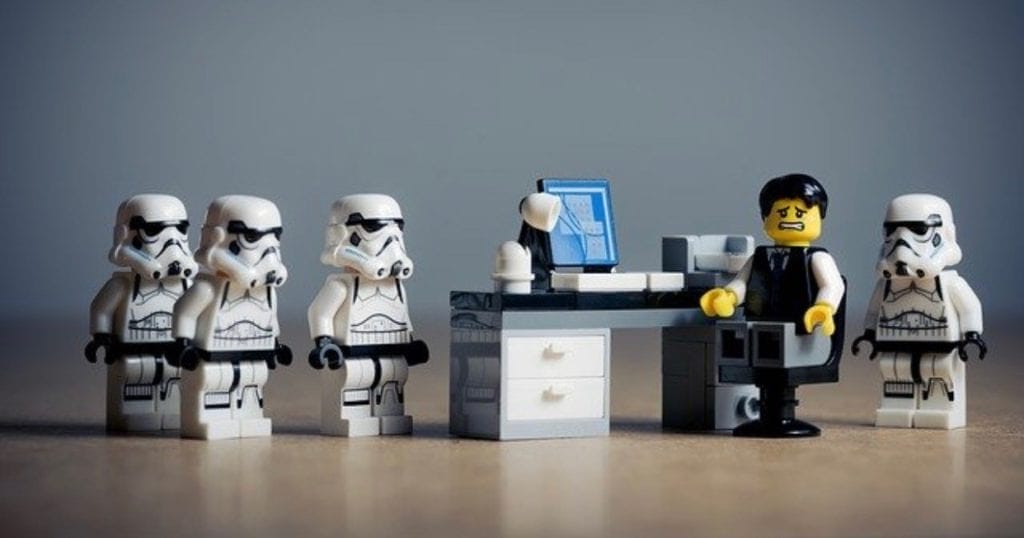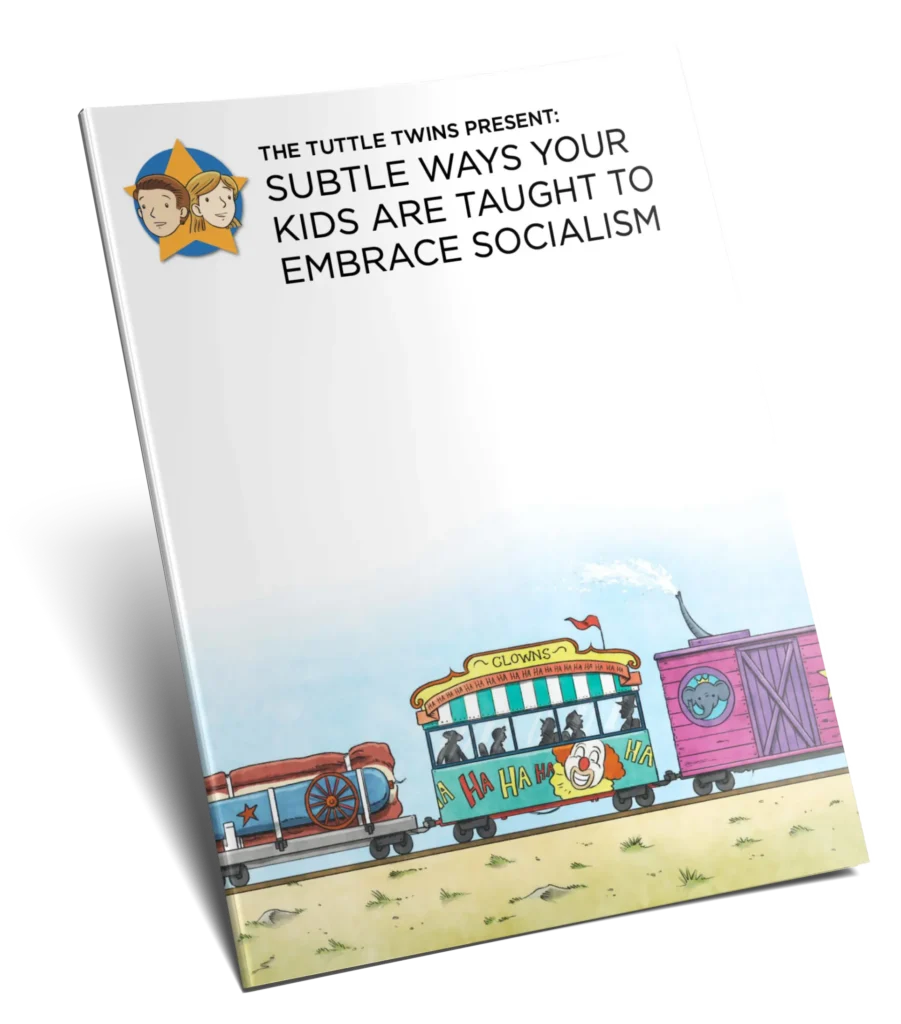
The other day I saw a post on Instagram where a woman listed out COVID-19 era terms that she and her family were choosing not to use. As has always been the case in “unprecedented” times, a new vocabulary often emerges—heavily influenced by news pundits, government agencies, and social media.
After 9/11, words and phrases entered into our everyday that many of us had never before spoken or written. Jihad, war on terror, sleeper cell, ground zero, Taliban, Patriot Act… the list is long and memorable.
So of course with a worldwide pandemic and massive shutdowns of life across the world, we are going to see new words and phrases rise to common use. A couple of weeks ago, I wrote about why it’s important to be careful what we accept as a “new normal” (a phrase which saw an uptick in use after 9/11 as well) because of the implication that things we allow during an “emergency” often become permanent. (Ahem, Patriot Act and the surveillance state.)
One of the terms that this Instagrammer said she and her family had decided not to use was “essential.” I was thrilled to see that, and I wholeheartedly agree.
 Somewhere in the course of the last several weeks, a shocking majority of Americans accepted the government usurping a massive authority over their daily lives by allowing politicians to label activities and professions as “essential” and “non-essential.” With hardly even a peep of resistance, people simply allowed the government to tell them that they are no longer capable of deciding in which ways they can live, work, and pursue the quality of life that they desire.
Somewhere in the course of the last several weeks, a shocking majority of Americans accepted the government usurping a massive authority over their daily lives by allowing politicians to label activities and professions as “essential” and “non-essential.” With hardly even a peep of resistance, people simply allowed the government to tell them that they are no longer capable of deciding in which ways they can live, work, and pursue the quality of life that they desire.
I’m happy to see that pockets of resistance have begun to spring up. Hashtags like #everyjobisessential and #alljobsmatter are starting to gain traction on social media, and more and more organizations are beginning to write articles questioning the essential/non-essential narrative. I hope it isn’t too late.
I keep going back to thinking about the degree of blind obedience that so many people have to have developed toward their government for the general acceptance of some jobs and activities being essential and some not being essential—and the government being able to supposedly determine which is which.
Republicans, Democrats… the blind acceptance of the “essential” narrative doesn’t seem to follow party lines at all. The line I can most clearly see is one between:
- those who run their own business, those who have been deemed non-essential but who are not eligible for subsidies, or those who are not collecting unemployment; and
- those who still have jobs because they were deemed “essential,” those we are collecting unemployment and making more than they were before their places of employment were shut down (!!!), and those who run big corporations.
A great divide has been created, with those who advocate an opening up of the economy being labeled as selfish and those who push “Stay Home, Stay Safe” labeling themselves as virtuous and compassionate (how conveniently they proclaim themselves virtuous). “You value money  over human life!” and “You don’t care if people die so you can get a haircut!” have become the demeaning battle cries against individuals and businesses who don’t agree that their needs and livelihoods are non-essential.
over human life!” and “You don’t care if people die so you can get a haircut!” have become the demeaning battle cries against individuals and businesses who don’t agree that their needs and livelihoods are non-essential.
Some have opined that the lesson taught by the public education system for the last couple of generations—that government is what keeps us safe, and that in times of crisis or concern an appeal should be made to authority before any other action—has created a population that can’t imagine any way to survive a viral outbreak without government stepping in to dictate each and every individual action. I think there’s a good bit of truth in that opinion.
One of the lessons I have tried to convey across all of the Tuttle Twins books is the power that individuals—even children—and communities have to bring about changes and make decisions that are right for them and those whom they voluntarily associate with. I recognize the importance of breaking the narrative that government is our savior and the virtuous bestower of our liberties. Because when we endow government with that power—whether through legislation, or simply through compliance with gross authoritarian overreach—we find ourselves very hard-pressed to ever take it back.
A standard, it seems, has been set—and our elected representatives have noticed. By allowing them to tell us that, “his job is essential, but hers is not,” and that, “her mental health care is allowed because she chooses wine and Netflix to unwind, but his is not because he chooses sports or fishing,” we have without so much as a fight given sweeping (and possibly lasting) authority over nearly every aspect of our lives to people who have no concern for us on an individual level, and who categorize us as merely a collective citizenry.
As a writer and a speaker, I am keenly aware of how much the words we choose to use matter. The phrases we adopt and use during times of crisis or upheaval become the platform used by politicians to mold our lives in the future, and so we must be careful about the ideas to which we give any legitimacy.
Every job that puts food on the table is essential.
Every activity that keeps someone from turning to self-harm or from losing hope is essential.
It is the mark of a despot to try to force the same morals, the same needs, the same wants, and the same desires and actions onto an entire population—and yet that is precisely what governments around the world have done.
Yes, it’s been done in the name of saving lives… but all politicians can do is force trade-offs. There are hidden costs and unintended consequences of these actions that will in fact ruin many, many other lives. (Suicide and domestic violence hotlines have seen a surge in problems, and the incoming food shortages and starvation are horrific to consider.)
 When I wrote The Tuttle Twins and the Messed Up Market, I viewed its lessons on human action from a mostly economic perspective, but just like individual human action is what controls markets, so does individual human choice and action shape the mental health and overall well-being of a society. And right now, total government control of human action is bringing catastrophic consequences to far more than just our economy.
When I wrote The Tuttle Twins and the Messed Up Market, I viewed its lessons on human action from a mostly economic perspective, but just like individual human action is what controls markets, so does individual human choice and action shape the mental health and overall well-being of a society. And right now, total government control of human action is bringing catastrophic consequences to far more than just our economy.
Ayn Rand said, “The smallest minority on earth is the individual. Those who deny individual rights cannot claim to be defenders of minorities.”
It’s time to do a better job at protecting the individual. No one is non-essential.
— Connor

